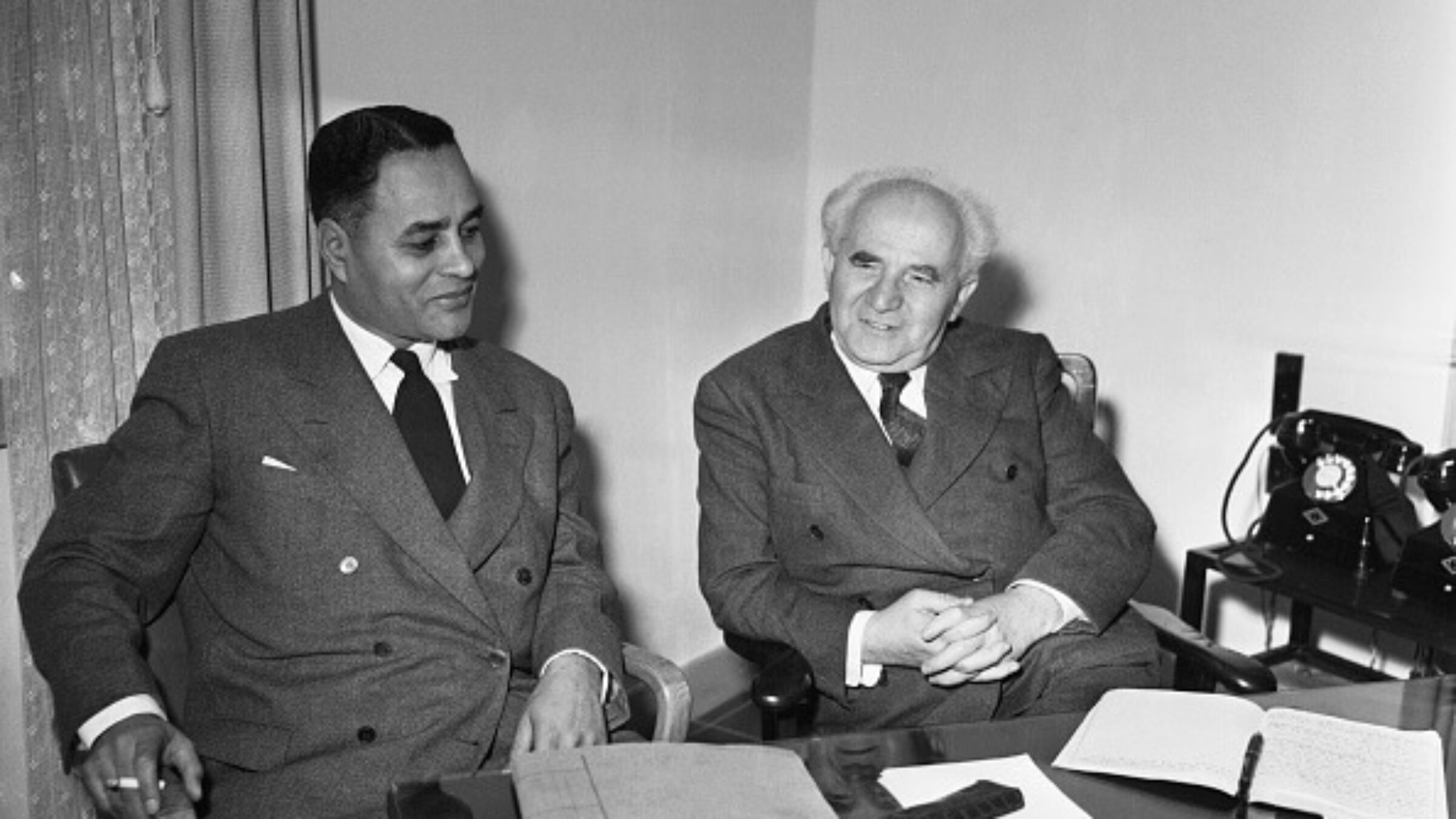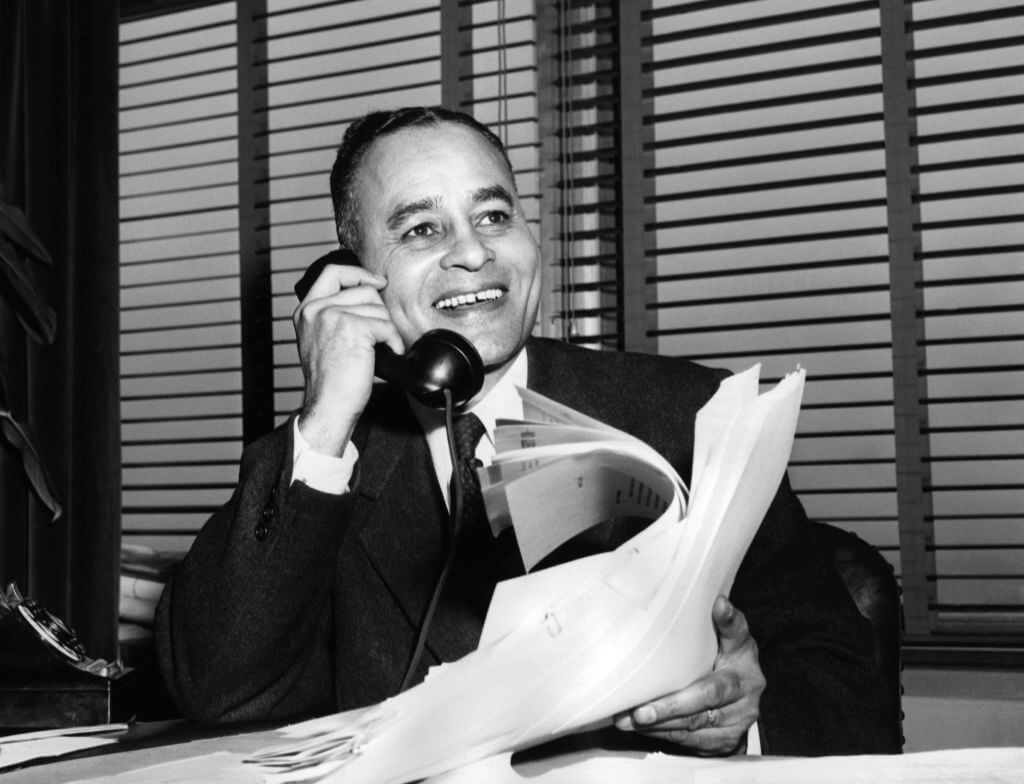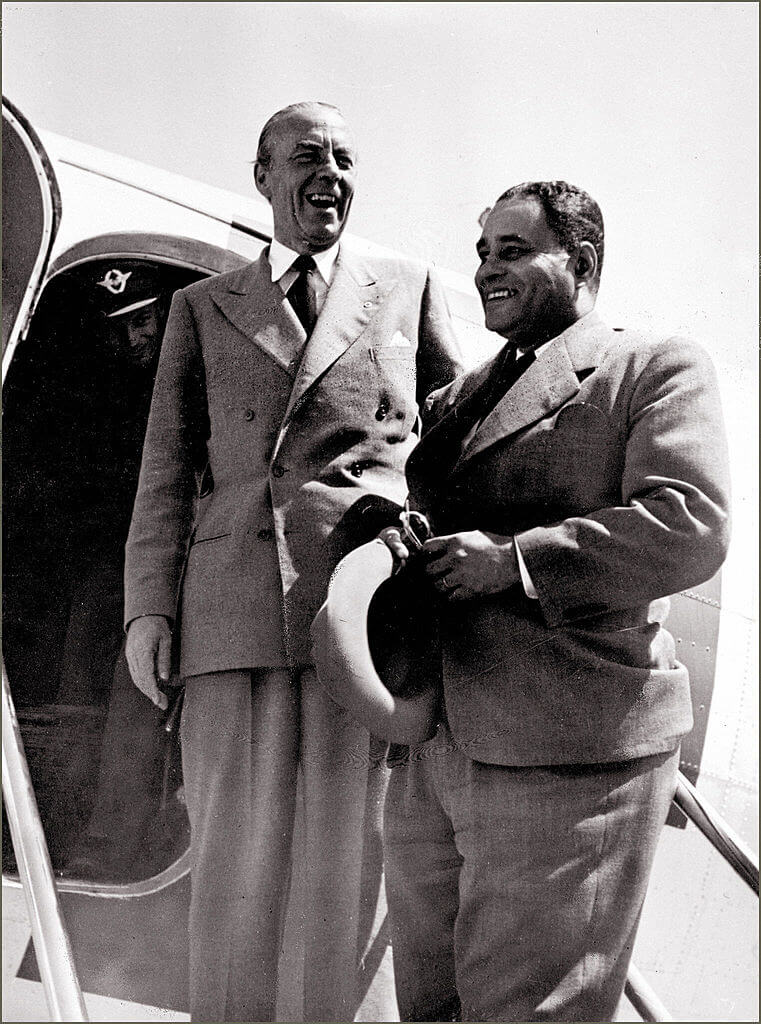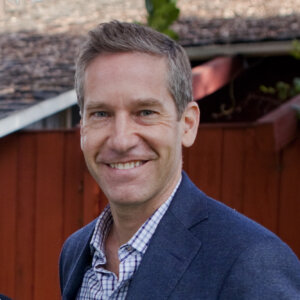This Black American diplomat is one of the least-known architects of the state of Israel
Ralph Bunche, the first African American to win a Nobel Peace Prize, was honored for mediating between Israel and its neighbors

Ralph Bunche with then-Israeli prime minister David Ben-Gurion, seven months after the creation of the state of Israel, Dec. 12, 1948. Photo by Getty Images
In October, Israel’s ambassador to the United Nations, Gilad Erdan, slammed the latest report from a U.N. human rights body calling for the International Criminal Court to investigate Israeli human rights abuses toward the Palestinians, calling it “terror white-washing” and “morally bankrupt.” Such open conflict between the U.N. and Israel is now sadly commonplace.
Yet 75 years ago this month, a very different relationship existed when the U.N. decided to partition the territory then known as Palestine. The U.N.’s actions not only made Israel’s birth possible, but were cited in Israel’s Declaration of Independence as “irrevocable.”
One of the chief authors of that influential decision is largely forgotten today: the Black American diplomat and Nobel Peace Prize laureate Ralph Bunche. Golda Meir would later say that almost no outsider was more central to the birth of Israel than Bunche. As Israel ushers in a new government, one seemingly more opposed to the U.N. than ever before, it is worth remembering the crucial role played by the U.N. — and Bunche – in ushering the country into existence.
At the end of World War II, conflict between Arabs and Jews, and their shared animosity toward their British overlords, intensified. Eventually, exhausted by the war, Britain handed the problem of Palestine to the newly created U.N.
The U.N. immediately convened a “Special Committee on Palestine” to forge a recommendation. Ralph Bunche, then a mid-level U.N. official with little experience in the region, was sent to the Middle East. His task was to assist a multinational team of diplomats in their effort to develop a workable solution to the impasse of who would rule the former Ottoman territory, and where.

Bunche, who had written his doctoral dissertation at Harvard on colonial governance in Africa, was a former Howard professor who had been recruited into the Roosevelt administration in 1941. After serving in the State Department, where he helped draft the U.N. Charter, he moved to the U.N. itself. With few staff at the organization having any experience in colonial regions, Bunche was tapped to travel to the Middle East.
The U.N. committee toured the region, interviewing leaders like Menachem Begin, then head of the Zionist paramilitary group called the Irgun, and King Abdullah of Jordan, as well as farmers and business owners. Bunche found a tense Jerusalem in June 1947, full of barbed wire and barricades. Having come of age in South Central Los Angeles in the 1920s, Bunche was largely unfamiliar with Jewish customs. He marveled at the Wailing Wall and discovered that Jews were far more diverse than he knew, including what he called “Black Jews,” or Mizrahim. He thought Palestine had a “lazy tempo,” but that the “spirit in the kibbutzes” was impressive.
The only thing the Arabs and Jews could agree on, Bunche wrote a friend, was that “the British must go.”
Bunche was quite troubled by the views of some of the members of the U.N .committee. A few were openly antisemitic, and ultimately supportive of a Jewish state in part because they hoped their own Jewish populations would emigrate.
The U.N. committee eventually offered two proposals to the U.N. General Assembly, against Bunche’s advice for unanimity. The majority recommended partition into two states; the minority a single federal, binational state. The question of Palestine elicited fierce disagreement back in New York City, with thousands of spectators crowding a repurposed ice rink in Queens for the debate. The final vote on Nov. 29 was 33 states in favor and 13 opposed, with 10 nations abstaining. The partition was approved.
Fighting immediately flared in Palestine, and many questioned how — or whether — partition could ever be implemented. Yet on May 14, 1948, the last British High Commissioner for Palestine departed for London, and David Ben-Gurion and other leaders of the Jewish community gathered in Tel Aviv to proclaim Israel’s independence.
The Israeli leaders set forth their claims to the land of Israel in historical terms. Yet they also repeatedly invoked the core role played by the U.N. and formally appealed to the organization “to assist the Jewish people” in the creation of the state and to receive Israel “into the community of nations.”
Bunche’s efforts on behalf of the U.N. had helped to convince Israeli leadership that they needed to be accepted on the global stage, and recognized as part of the international community forging a fresh path in the wake of World War II’s destruction.
Almost immediately, however, violence again broke out, and Bunche returned to the Middle East. On Sept. 17, 1948, Folke Bernadotte, the original mediator appointed by the U.N. to broker peace, was assassinated on a Jerusalem side street by Jewish extremists posing as Israeli soldiers. Bunche, who had been his deputy, narrowly missed being riddled with bullets, and was appointed in his place. His marathon bilateral negotiations between Israel and Egypt, Jordan, Syria and Lebanon led to a series of armistices, for which Bunche won the Nobel Peace Prize in 1950.

In the years that followed, he remained close with Israeli leaders like Ben-Gurion and Abba Eban. Bunche died on Dec. 9, 1971, too soon to really grapple with the implications of the Israeli occupation. However, he would remark that until what he called “the refugee problem” was solved, violence would be inevitable.
Upon his death, Jewish leaders praised Bunche’s “deep understanding, moral integrity, and devotion to peace.” Then-Israeli prime minister Golda Meir cabled his widow, Ruth, that Ralph “contributed so much to bringing to a close the first outburst of Arab hostility against Israel.” It is possible that without Bunche’s patience, understanding and diplomacy in those early years Israel may not have survived.
Bunche was a true believer in peacemaking. Indeed, in many ways he was the man who created U.N. peacekeeping, first in the wake of the 1956 Suez Crisis, when U.N. troops from around the world poured into Gaza, and again in Congo, Cyprus and many other hotspots. A self-proclaimed “professional optimist,” Bunche was firmly of the conviction that any lasting solution to political division would ultimately rest on a foundation not of conflict, but compromise.
Israel and the U.N. are unlikely to recapture any time soon the mutual support they shared in the 1940s. Yet the basic principles Bunche and the U.N. laid down 75 years ago — two states, Arab and Jewish — remain sound, if ultimately elusive.
In the face of an extremist far-right ruling party’s ascension in Israel, it would be wise for Israeli leaders to recall Ralph Bunche’s optimism and commitment to diplomacy. Were he alive today, he would surely counsel that it is not too late to pursue a path of compromise that would ensure lasting peace, and not a one-sided, but perhaps ultimately pyrrhic, victory.
To contact the author, email [email protected].
Correction: The original version of this article incorrectly stated the date of Bunche’s death. He died Dec. 9, 1971.























